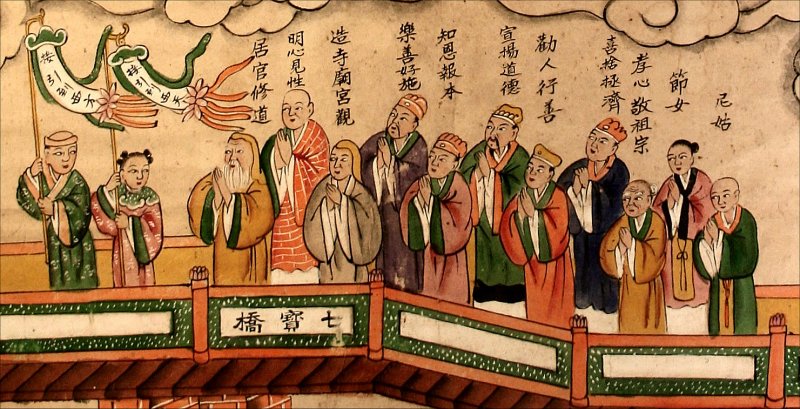
Translation of bridge name
Bridge of the seven treasures
Translation of the banners (from right to left)
Leading to the Western Heaven
Leading to the Western Land
Translation of the list of the dead leaving for the Pure Land (from right to left)
- Buddhist nun
- Chaste woman
- Filially minded and respectful of ancestors
- Loved giving alms and offering relief
- Advised others to carry out goodness
- Propagated Daoism
- Understood kindness and recompensed its source
- Found joy in goodness and delighted in sharing
- Built temples and shrines, halls and monasteries
- Enlightened his mind and saw his nature
- Cultivated the Dao while in office
Those judged meritorious and worthy of entering heaven here take their leave of samsara -- of the endless cycle of birth and rebirth -- for the "Western Heaven," also known as the "Pure Land," which is a realm generated by the pure thoughts of Amitabha. The Pure Land is a kind of antechamber to Nirvana, giving humans the opportunity to embrace the dharma and accept nonduality. Unlike the dead who traipse through hell, these people will never be reborn again.
Yet it has been argued that the Pure Land does not easily conform to the general idea of karma, of just retribution for every act of evil or good. Pure Land Buddhism made use of name recitation as a popular form of meditation. If at the moment of death one sincerely holds Amitabha's name in one's mind, that person can expediently bypass hell and rebirth and directly enter this Pure Land paradise. Or as Peter Harvey explains:
[I]t is possible to scrape into the Happy Land on a bare minimum of personal worth, due to Amitabha's grace. Only someone who slanders or obstructs the Dharma cannot be reborn there. A person must nevertheless prepare himself before death by serenely reciting Namo Amitabha Buddhaya, "Honour to Amitabha Buddha," ten times while continually thinking of Amitabha. In the Happy Land, however, an evil-doer will initially go through a kind of purgatory, being reborn in a "lotus" which remains closed for many ages before he can benefit from the Pure Land. Others will be closer to enlightenment according to the extent of their faith, virtue, meditation and knowledge.
Or as Lin Yutang, himself a Pure Land Buddhist (and not to be confused with the famous popularizer of Chinese ideas for a Western audience), explained its broad appeal in modern terms:
We may encounter an inopportune death, such as drowning, freezing, being shot, crushed or burned to death, or death due to diseases like cancer, heart attack or AIDS. After death we would go through endless transmigrations in the six realms -- heaven, asura, human, animal, hungry ghost and hell -- and endure countless repetitions of suffering; while those who have gone to the Pure Land of Amitabha Buddha are forever free from this vicious recycling of sorrows. We couldn't help but envy them. Fortunately Buddha's teachings are not patented by them; owing to the boundless compassion of Buddha, as long as we are willing to learn and practice the teachings diligently, we shall be at ease with life and death, and be liberated from all suffering.Buddha gave various teachings to different people, always choosing the most appropriate one to suit the students' levels and needs. All the teachings from Buddha are sure paths leading to complete liberation, but which one is the best for ordinary people? The traditional choice is the practice of chanting "Amitabha." Even today it remains the most popular practice adopted by Buddhists all over the world."
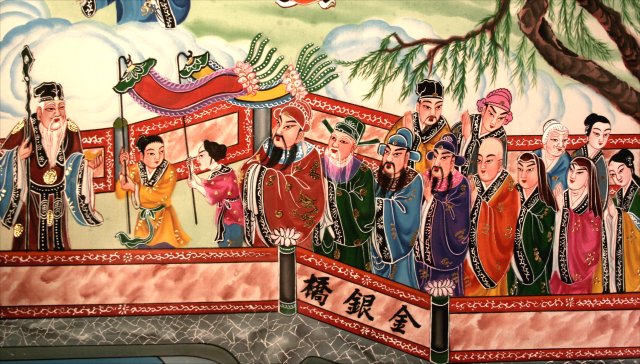
A second example of the bridge leading off to the Pure Land from another hell scroll (E1).
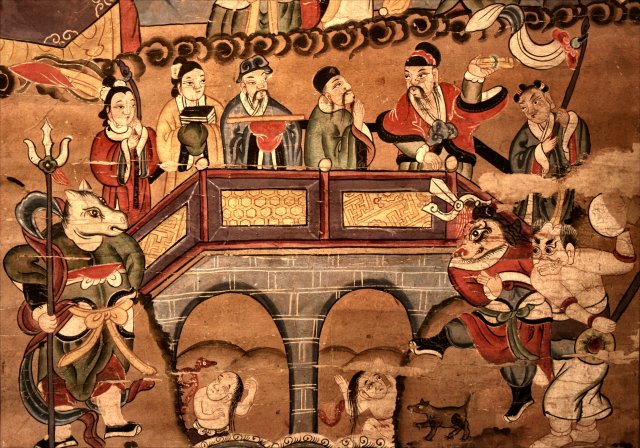
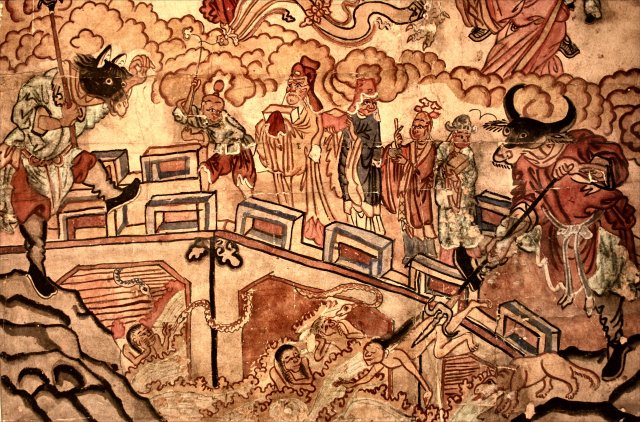
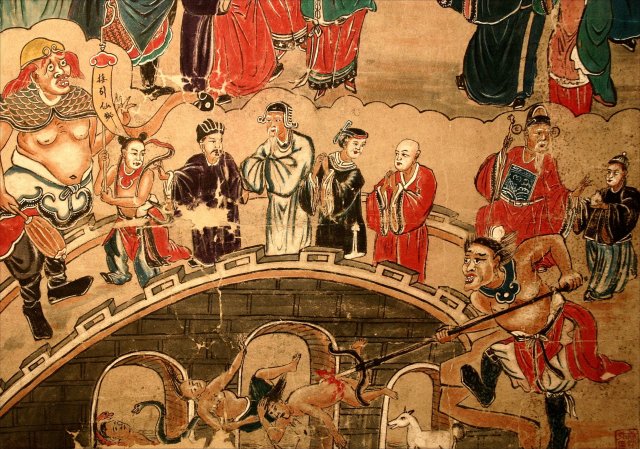
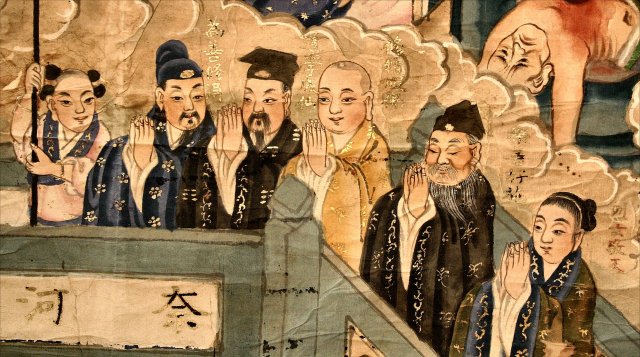
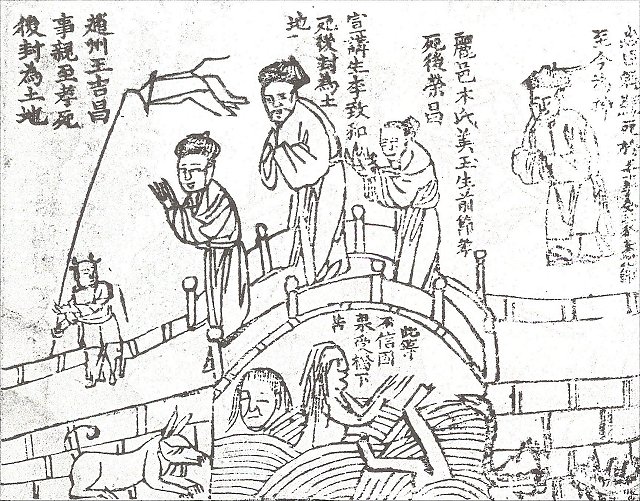
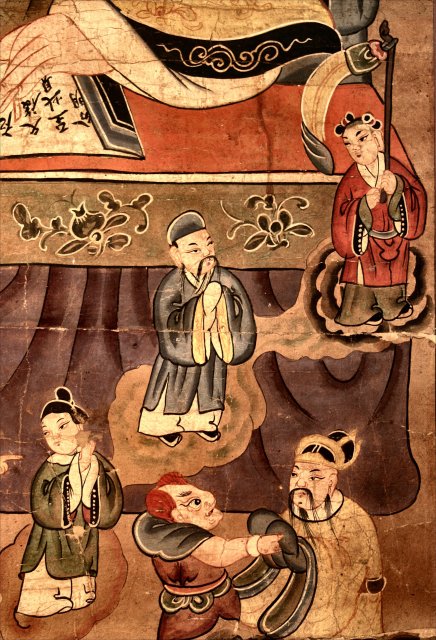
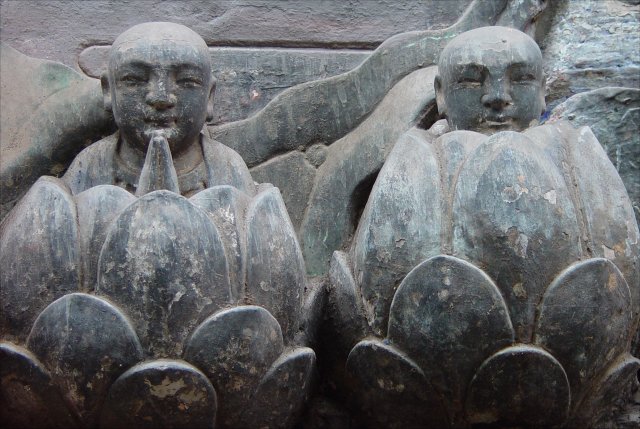
Being reborn inside a lotus in the Pure Land (to which Harvey alludes above) as depicted at the Dazu Rock Carvings.